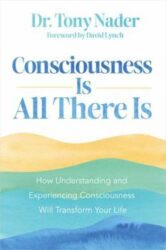Hedging Against Alzheimer’s

In January of 2009 both my parents were diagnosed with “dementia of the Alzheimer’s kind” on the same day. I was expecting such a diagnosis for my mother, who was suffering from short-term memory loss (and who had a history of Alzheimer’s in the family). But the diagnosis for my father? My siblings and I were stunned. At 84 he had slowed down, for sure, but we had attributed his sudden disinterest in yard work and taking care of his finances to an infection that he was fighting.
In the following months, as my father’s mental condition declined precipitously, my sister and I scrambled to rearrange our lives to give our parents the care that they needed. And as we talked endlessly about what had caused this, we found out that there was also Alzheimer’s in my father’s family—his mother had been diagnosed with what they termed then as “hardening of the arteries”—with symptoms that today would likely be classified as dementia of the Alzheimer’s kind.
Needless to say, with a history of Alzheimer’s on both sides of my family tree, prevention is on my mind. So I was interested to see a new research study that, to me, points toward stress relief as a way to hedge our bets against this debilitating disease.
The landmark study on Alzheimer’s, conducted at Harvard Medical School and published in Nature, pinpoints a protective protein in the prefrontal cortex (called, interestingly enough, REST) that switches on in the aging pre-frontal cortex in healthy people—but fails to switch on in those with Alzheimer’s. This, the researchers believe, could explain why some people with the amyloid plaques and brain tangles associated with the Alzheimer’s brain have no symptoms of dementia. Researchers have long suspected that another factor was involved, and these researchers think it’s the REST protein that provides the missing link.
Here’s what caught my eye: The protective REST protein is switched on as part of the brain’s stress response.
“Our work raises the possibility that the abnormal protein aggregates associated with Alzheimer’s and other neurodegenerative diseases may not be sufficient to cause dementia; you may also need a failure of the brain’s stress response system,” said Bruce Yankner, Harvard Medical School professor of genetics and leader of the study, in an article by Shelley Emling in the Huffington Post.
So in other words, the onset of Alzheimer’s could be related to a failed stress response, which is often caused by chronic stress.
This makes sense to me.
Researchers already know that when a person is under stress, the prefrontal cortex, which is involved in decision-making, planning and coordinating functions, becomes less able to engage with the demands of the environment. It’s as if it goes “offline.” Loss of memory, impaired cognitive functioning, inability to make decisions, ADHD and a host of other mental deficits are symptoms.
One of the best ways to protect the pre-frontal cortex from stress, research is finding, is the daily practice of the Transcendental Meditation technique. Practicing TM not only reduces day-to-day stress, it breaks the cycle of chronic stress and fatigue. And while stress takes the pre-frontal cortex offline, TM has an enlivening effect, switching it on, in effect.
“The Transcendental Meditation has the exact opposite effect on the pre-frontal cortex as stress,” says Dr. Fred Travis, a researcher who has published more than 100 studies in peer-reviewed journals on stress and the brain. “Neuroimaging studies show increased activity in the frontal area of the brain during Transcendental Meditation practice, as compared to just sitting in eyes-closed rest. In addition to increased activity in the frontal areas, we also see increased activity in the back of the brain—the parietal areas. These two parts of the brain are part of the attentional circuit.”
The aging brain, especially, can benefit from the protective benefits of TM on the pre-frontal cortex. Even in healthy, younger people, chronic stress can affect memory, cognition and the ability to adapt to changing circumstances. At any age, when we are restricted by stress, fatigue, and other negative factors, then the brain is less adaptable, and we become handicapped in how we process and respond to our world.
I’m suspecting that my daily practice of the Transcendental Meditation technique can help protect my brain from the dementia and Alzheimer’s that has plagued my family for generations. I’m basing my lifestyle on other research as well. Aerobic exercise is found to build brain cells. Inflammation may be the cause of Alzheimer’s, some researchers say, so eating lots of antioxidants can help. Exercising your brain with plenty of mental stimulation is important. Having a wide social network may be a protective factor, say other studies. Getting enough sleep is another protective factor, a recent study at Temple University recently found.
It all comes down to a balanced lifestyle, and I’m aiming for chronic health rather than chronic disease—for now and into the future.
And while it will take years for researchers to follow up on these studies and others to find the true cause of dementia, who knows? Perhaps by keeping my stress response nimble and strengthening my pre-frontal cortex through TM, getting a good night’s sleep and maintaining a balanced lifestyle, my brain will switch on the REST protein to protect it from the disease that is affecting so many American families, including my own.
About the Author
Linda Egenes writes about green and healthy living and is the author of six books, including The Ramayana: A New Retelling of Valmiki’s Ancient Epic—Complete and Comprehensive, co-authored with Kumuda Reddy, M.D.
More Posts by Linda
- Tired and Burned Out? Transcendental Meditation Can Help: An Interview with Dr. Nancy Lonsdorf, MD
- Worried About the Future? Six Ways to Calm Your Anxiety
- What Do You Carry in Your Self-Care Tool Kit?
- Five Strategies for Family Caregivers
- From the Streets to College in Four Months: The Communiversity of South Africa Empowers Underserved Youth in Cape Town





